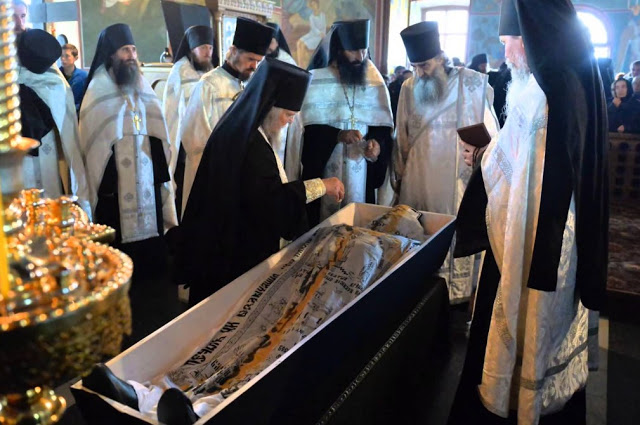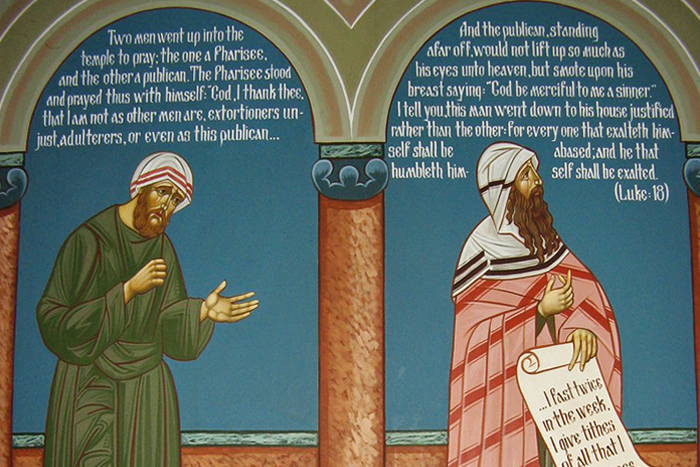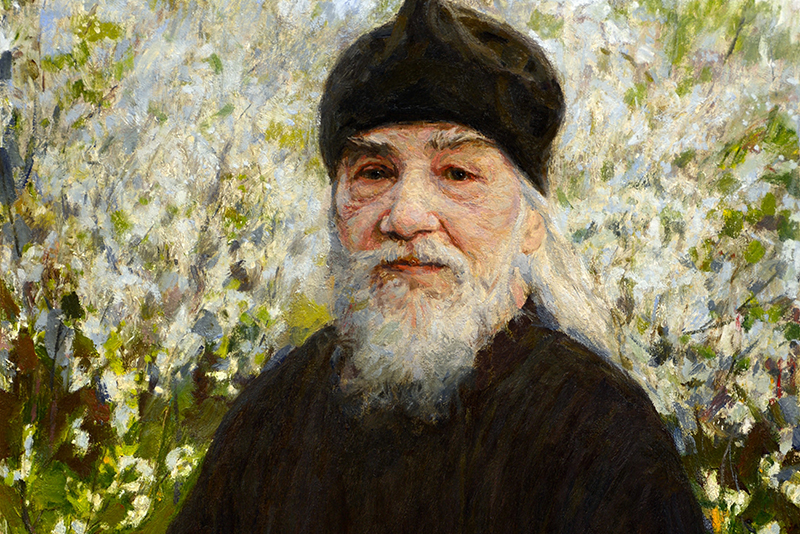
Earthly love is born in the same place where tears are born: in the eye. You’ve got to see in order to love. The saying “Out of sight, out of mind” has some truth to it, after all. Nonetheless, this isn’t the main kind of love. The love that does not depend on eye perception is worth a lot more. It is this feeling that faith is linked to. We haven’t seen Christ with our eyes but we love him. We heard words about him and they made it into our hearts and changed our lives dramatically. Eyes don’t have anything to do with it. This is the same kind of love that we feel towards our deceased: the people whom we can’t see anymore but continue to love.
Your deceased relative is like a person who left for a remote land and has to spend a lot of time there. You can’t see him but your heart can’t be fooled. Your heart feels that your loved one is alive. Your heart calls you to prayer.
I’m always terrified when I think that there are millions of people who profess their faith in Christ but don’t pray for the departed. Those people are called Evangelicals. They justify their position by saying that the Gospel does not prescribe doing so. As if Jesus aimed at setting strict rules for our daily life. As if He brought us new laws, thousands of new dos and don’ts, instead of the spirit of freedom. Didn’t He say that our God is the God of the living, not the dead because all live unto him (cf. Luke 20: 38)? If so, why is praying for the living prohibited?
Evangelicals consider the border between those who live here and those who are “gone” to be impassable. If someone has completed his life, you can’t influence his eternal fate so it’s useless to pray for him, they say.
In fact, the border between us and them is quite porous. One can see through it from both sides, if one’s spiritual eyes are sharp enough. The undying love towards the reposed makes us pray to God —who is Love—for mercy on those people who left this earthly realm.
There aren’t any whole people in the spiritual world yet, except Christ and the Mother of God. There are just human souls. A soul without a body isn’t the whole person; it’s just a soul of a person. A body without a soul is just a human body. Death tears us apart. We will be restored no earlier than the Judgment Day comes. No one has heard the final verdict of Jesus Christ yet. No one has been sent off to the hell yet. No one enjoys absolute bliss yet. The eternity will reign only after the bodily resurrection. Some people will be embraced by fire, while others will be met with a joyous song of Angels.
Until that hour comes, souls are in anticipation of their future, which will bring bliss for some and torment for others. If there is anything worth doing during that time, it’s prayer.
![]()
The Revelation of St John calls Jesus Christ the One who has the Key of David, among other things. If He locks a door, no one can open it. On the other hand, no one can lock the door that He opened. Evangelicals are in a hurry to lock the door of God’s mercy for the deceased, in spite of the fact that the cup of patience isn’t full yet, the season of grace isn’t over, and Christ has not yet passed his final judgment on certain people.
If only the problem we are talking about was with those who don’t pray at all! There are lots of those who can’t even open their mouth to say, “Lord have mercy!” In this case, we are talking about staunch believers who read the Scripture, pray to the Father, and work hard to fulfill the will of the Son.
If we exclude from our prayers those of our brothers and sisters who happened to die, it’s like cutting off one’s hand or piercing one’s eye. Should we stop praying for other people altogether? Does each person have to rely only on himself? If he is ill, let him suffer. That’s God’s will. He must redeem his sins with that suffering. We don’t think so, do we? We have learned to carry each other’s burdens and thus fulfill the law of Christ. We have learned to intercede for one another. Prayer has always been the best way to help, defend, and stand up against the enemy.
![]()
The Church is one Body. The living and the dead can’t see each other, sure. But then the hair on one’s head can’t see the skin on one’s feet. However, the entire body—from tip to toe—is nurtured with the same blood. The Church is a Grapevine. Not all grapes touch each other but they all draw water from one root. The reposed Christians are members of the same Body of Christ. Leaving them without our prayer is the same as leaving hungry kids without bread. They are as helpless as kids. Countless eyes of our deceased brothers and sisters whose numbers are greater than the number of stars that shine in the sky are looking at us intently and imploringly.
Of course, the dead people have lost their chance to change anything. The time of labor is gone. However, their souls haven’t lost the ability to receive grace, and the time to pay their spiritual bills hasn’t come yet.
O Holy Orthodox Church! How beautiful you are, the meek and simple Bride of Christ, wary of talking too much but focused on the most essential things! During the Last Judgment, it is thanks to you that we will hear the gratitude of those for whom we have prayed with love. After we die, we hope to be comforted with the prayers of those who love us and believe in God, too.
With that said, the source of our primary hope is Jesus Christ the Righteous One with his Cross and his Resurrection. All other incentives are but a dessert at his meal. That dessert is so delicious, though! How blind are those who refuse to eat the sweetest food from the hands of the Great Master who has prepared a huge feast for us!





Excellent writing i sent to my daughter in law and members of her family to meditate and bring peace in these times of sorrow and mourning they are experiencing
Beautifully explained. Thank you, Fr. Andrew Tkachev i know it will console all who read this sensible true faith.